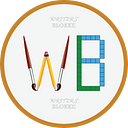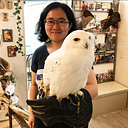4 Things I Learned Writing 100 Stories in 100 Days
Is this challenge for you? How can you prepare for it? I’ve tried it, so you can avoid pitfalls.
When I started a pen name account, I decided to do a 100 stories in 100 days challenge for myself. They say consistency is the key, so I was there to test it out. And when I am posting, you know I managed it. To be honest, it feels great for a few minutes, then I am up to prepare for the next post. Today I am talking about the writing side of the challenge, not that much about how the platform reacts to my posting schedule.
Before jumping into the meat of the topic, I am not addressing whether a post a day means the quality is bad. In short, I don’t think it is the case. My followers on the account enjoy my stories, so I think it is entertaining enough for them to clap and follow.
Setting up a habit
The most important aspect for me is building up a schedule. For me, it is after I had dinner, at 9 pm. This leaves me enough time to get a brief break after eating and washing up before sitting down and write. It is a bit awkward for the first week when I could be doing everything else that won’t need a brain. But after I got some practice, it is easier to sit down and write than not writing for the day.
You can also try to start writing at the same time every day, or you can go one step more to set up the scene for your writing. Use your favorite writing mug, in your specific room or even have a laptop or computer just for writing, pick your workplace so that you grow to enjoy writing.
Having A List of Ideas
Around a month in, I used up every low-hanging fruit in terms of ideas. At the same time, some ideas I’ve already written about seem interesting enough I can revisit and bring another twist to it (I write fiction, so the same premise can branch out to very different end results). When I encounter ideas, I wrote them down.
Conventional wisdom says that bringing a notebook helps. I like that idea, but knowing me, either I will be too slow to take out the book, or I will spend too long looking for my pen. For me, I wrote them down on my phone. I mostly use Whatsapp, so I will type the topic or theme and message myself.
When I am on the road and my mind comes up with snippets I can use some time later, I do the same. When I get back to my laptop, I will copy the ideas over to a better storage place. My ideas usually keep growing on their own, like a good stew taking time in the pot, when the time comes, I will pull them and write the next story.
After having a month’s worth of stories, I can look back at my statistic to see whether my readers are liking some topics more than others, which is helpful in deciding what to write next. While I enjoy writing for my own enjoyment, I also enjoy entertaining my readers, so I aim to find the overlapping zones and write in there. Who says we have to choose either?
Using Constraints to Your Advantage
Some say that constrain kills creativity, but for me, constrain is the key to writing and writing consistently. Some people experience the notorious blank page syndrome. I think of it as the blank page having too much freedom and ie, no constraint.
For my pen name account, the genre it is in is one of the constrain. When I start a new document, I already know what the story will be about instead of deciding whether I am writing fantasy, sci-fi, or thriller for the day. Then I may pick a trope/ theme for what I will be writing so that I am not constantly debating what to write about. Not only will this cut down the time needed to write, but it also saves the mental energy needed to make decisions. The fewer decisions needed, the less resistant there will be.
Another constrain I like is using a timer. You can try it by just seeing how long will it take for you to finish a story. I am quite competitive in that aspect, so it is fun for me to know how fast I can finish a piece and it is even better if I am improving my typing speed. When you see the timer running, it is less likely for you to jump over to social media and/ or other places. You will have to pause the timer, and sometimes that alone can act as a deterrent to swap tasks.
You can also try using some trackers. As mentioned above, you can track how much time you spend on your work daily, or you can track your word count. Whatever way you can motivate yourself is a good way. Everyone is different and can be different, so take bits and pieces that suit you to get the words down.
Having the Right Expectation
Before you start and during the challenge, it is important to constantly review your progress. We all are facing different situations and walks in life, so maybe the 100 stories in 100 days challenge is not for you and it is fine. When you can set up a good goal for yourself, it is easier to keep going. No one enjoys failing, even when it is arbitrary goals we set for ourselves and it is hard to keep going when you feel like a failure consistently. In reverse, if you keep feeling great about achieving your goal, it is easier to keep going forward with positive momentum.
For me and my circumstances, writing short fiction pieces daily is reasonable and makes for a good change of scenery after working on my main work. Therefore I chose the challenge to kick start my pen name account.
The most important thing is to remember why you want to write and to enjoy the process. Writing is not easy and you may have a lot more hobbies and things you can be doing instead. While writing will be challenging at times, why torture yourself doing something you absolutely hate?
In case you are interested, I have another article about goal setting you may be interested in.
If you liked this story, you may like my other articles on Medium.
Don’t forget to follow me for more.
Thanks for reading!

